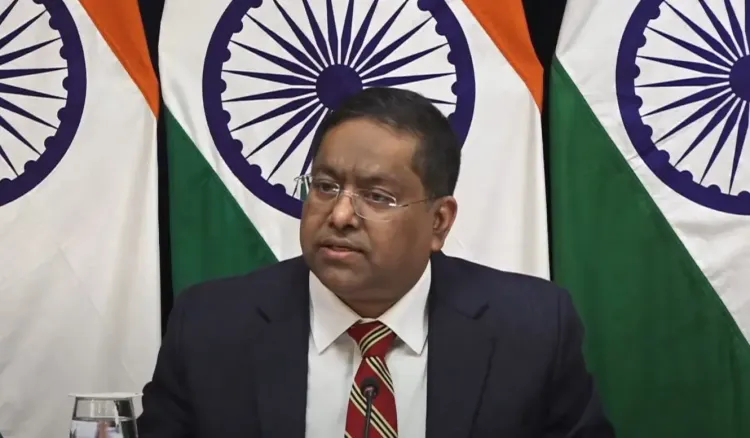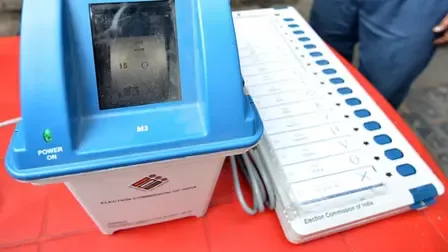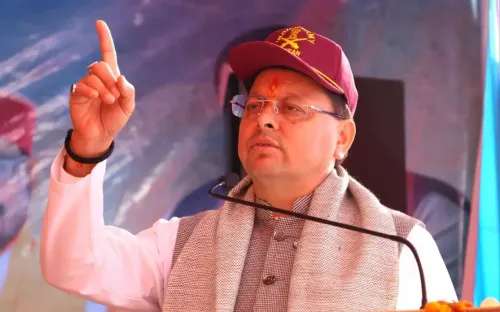India Raises Concerns Over Chinese Mega Project on Cross-Border River and Newly Established Counties in Illegally Occupied Territory

New Delhi, Jan 3 (NationPress) Over a week after the Chinese government sanctioned the development of a hydropower initiative in the lower sections of the Yarlung Tsangpo river, India announced on Friday that it would 'take necessary measures' while calling on Beijing to ensure that the interests of downstream nations are safeguarded.
The river, referred to as Yarlung Zangbo, traverses Tibet before entering Arunachal Pradesh and Assam, where it is known as the Brahmaputra. The hydropower project is situated in the southwestern region of China's Xizang Autonomous Region.
'We have noted the information released by Xinhua on December 25, 2024, regarding a hydropower project on the Yarlung Tsangpo River in the Tibet Autonomous Region of China. As a lower riparian state with recognized user rights to the river's waters, we have consistently conveyed our views and concerns regarding large-scale projects in their territory through both expert-level discussions and diplomatic channels,' stated Randhir Jaiswal, spokesperson for India's Ministry of External Affairs (MEA), during a regular media briefing in New Delhi on Friday.
'These concerns have been reiterated, emphasizing the need for transparency and consultation with downstream nations following the latest report. We urge the Chinese authorities to ensure that the interests of downstream states of the Brahmaputra are not compromised by activities in upstream areas. We will persist in monitoring developments and taking necessary actions to safeguard our interests,' he added.
As a lower riparian state with significant user rights to the waters of trans-border rivers, the Indian government closely observes all developments concerning the Brahmaputra, including China's plans for hydropower projects.
During its 12th Five Year Plan for 2011-2015, China intended to establish three additional hydropower projects on the main stream of the Brahmaputra River in the Tibet Autonomous Region. Of these, the first unit of the hydropower project at Jiacha became operational in August 2020.
In March 2021, China introduced its 14th Five Year Plan, which included intentions for hydropower development on the lower reaches of the Brahmaputra River.
'The Chinese authorities have informed us multiple times that they are only executing run-of-the-river hydropower projects which do not entail the diversion of Brahmaputra waters. Various issues related to trans-border rivers are discussed with China through institutionalized expert-level mechanisms as well as diplomatic engagements. We aim to maintain dialogue with China on trans-border river issues to protect our interests,' V Muraleedharan, the former Minister of State for External Affairs, stated in response to a question in the Lok Sabha in July 2021.
Meanwhile, New Delhi has expressed strong opposition to Beijing's recent announcement regarding the establishment of two new counties in the Hotan Prefecture of China, parts of which fall under India's Union Territory of Ladakh.
'We have never recognized the illegal Chinese occupation of Indian territory in this region. The formation of new counties will not alter India's longstanding and consistent position concerning our sovereignty over the area nor legitimize China's unlawful and forceful occupation. We have lodged a formal protest with the Chinese authorities through diplomatic channels,' the MEA spokesperson stated.










